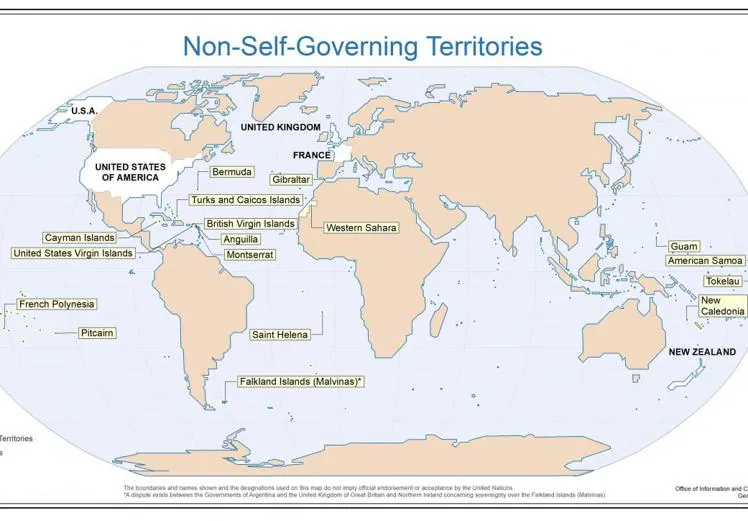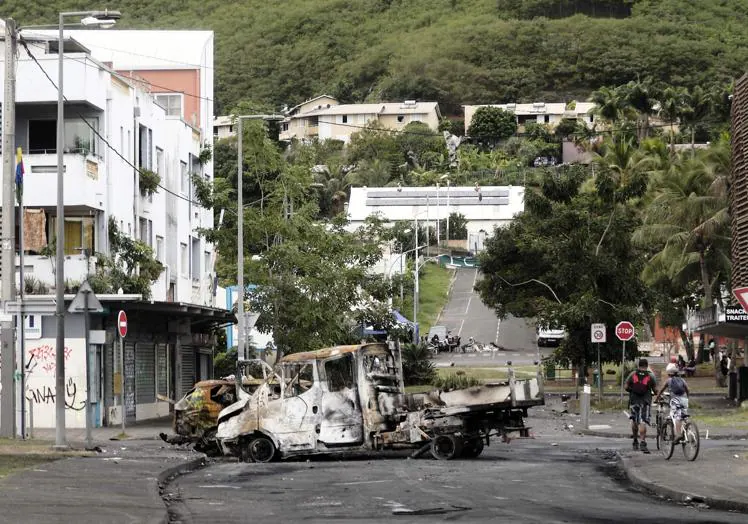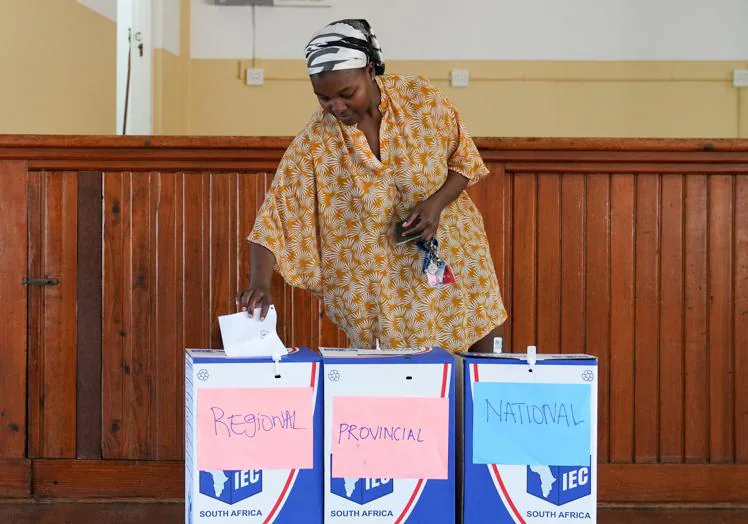Wednesday, June 5, 2024, 10:44
There are still vestiges of European colonization. New Caledonia is one of the 17 that appear on the agenda of the United Nations Special Committee on Decolonization: a small archipelago of 140 islands between Australia and New Zealand – but two hours by plane from each of those countries – that remains French territory. The annexation took place in 1853 and in 1946 it became part of the French overseas territories, in which Emmanuel Macron is not president but head of state represented by a high commissioner.
Until now, the regional government has been elected by those who resided in New Caledonia before 1998 and their descendants, a measure dictated after previous unrest to protect the representation of the indigenous Kanak ethnic group. However, now France has proposed a legal modification to allow any citizen who has resided on the island for more than a decade to vote. And that has caused a revolt that has forced the decree of a State of Emergency and the deployment of a large number of troops.
Therefore, today we set our sights on this small piece of Oceania.
These will be the three topics that we will address:
-

Unfinished decolonization
New Caledonia once again debates its independence
New Caledonia has a population similar to that of Vitoria or Valladolid, very few would know how to locate it on the map and, however, its social outbreak has made headlines around the world. Especially in France, the country to which he still belongs. According to the United Nations it is a ‘non-autonomous territory’, like Western Sahara or Gibraltar. In other words, a place that has not yet been decolonized.

The 17 territories pending decolonization.
UN
There are 17 around the world, and the vast majority fly the Union Jack of the United Kingdom. But the one that has now said enough is one of the two under French control. And New Caledonia is a particularly curious case, because on three occasions it has voted to decide its independence and on all occasions it has decided to continue belonging to France. The last one was held in 2021 and was especially controversial, because the pro-independence parties opposed organizing the referendum in the midst of the pandemic and called for a boycott. Only 43.9% participated, very far from the percentages recorded in 2018 and 2020, when 80% was exceeded.
Now, however, the proposal made in April for a reform of the electoral regulations has caused half a dozen deaths, has left the capital -Noumea- in flames, and has once again given wings to the pro-independence parties, which demand to organize again. a referendum. Its supporters are mainly members of the Kanak ethnic group, who make up around 40% of the islands’ population. Around a quarter are Europeans who arrived attracted by one of the main riches of the archipelago, which is the third largest producer of nickel in the world.

Noumea after the riots.
AFP
Macron, however, what he wants to bring to a referendum is the modification of the law itself. But to a vote in which all French citizens can participate, a fact that provokes clear rejection among the population of New Caledonia. It is a situation that reopens the debate on the right to self-determination and that, regardless of how it is resolved, may have an impact on the rest of the territories awaiting decolonization.
-

Goodbye to the majority of the ANC
Regime change in South Africa
The African National Congress (ANC) has once again won the elections in South Africa. But Sunday’s was one of those victories that taste like defeat, because the ANC had been accustomed to an absolute majority for exactly three decades. The vote has shown that power wears down even the party that ended apartheid in the country, a milestone that is increasingly distant for young people, who suffer one of the highest unemployment rates in the world and see how the The country continues to lack basic infrastructure typical of the Third World.

A moment of the vote in South Africa.
Reuters
Now the ANC has been left with 159 seats in a chamber of 400 and will have to play its cards well to govern in a coalition, something increasingly common in the world. Absolute majorities are increasingly something of the past, a sign of growing sociopolitical fragmentation, and are relegated to authoritarian countries or poorly established democracies.
In the case of South Africa, the ANC will have to make its position clear regarding the main geopolitical frictions, since it has promoted the condemnation of Israel in the International Court of Justice and has positioned itself on the side of Russia and China on a global board. increasingly bipolar. However, this position is not shared by some of the parties with which the ANC could govern. Above all for the Democratic Alliance, one of the three major parties with which it could agree. What there is no doubt is that a necessary regime change is coming in the most developed – and also most unequal – country in Africa. Because political alternation is healthy.
-

Hyperinflation
Less zeros, more zigs
Traditionally, one of the most useful formulas to mask the depreciation – often accompanied by hyperinflation – suffered by the currencies of countries with weak and unstable economies has been to remove the zeros that were accumulating on the banknotes. In the case of Zimbabwe, the issue had reached surreal dimensions. The highest denomination of its dollar reached one hundred trillion (Anglo-Saxon): that is, a one followed by fourteen zeros.

Removing some would be of little use, because reality was going to add them soon. Not surprisingly, between January and April the Zimbabwe dollar lost three quarters of its value. So this measure is of no use if it is not accompanied by other much more forceful monetary policy measures. For this reason, on April 5, the country decided to change its currency and mint the ZiG, Zimbabwe Gold Dollar. The Central Bank emphasizes that it is supported by gold reserves and that the replacement, whose term has just concluded, gives confidence to both citizens and investors. Because it promises not to print bills like crazy.
However, it has been curious that one of the singers who have composed an ode to the new ZiG has received payment in US dollars. And some have used it to laugh at a currency to which they give no future. In fact, the US dollar is used in 85% of the country’s transactions, which shows that the great challenge is to convince people to abandon this informal dollarization that is repeated in other countries characterized by the instability of their currencies and adopt a national currency “so that it does not die.”
Is all for today. I hope I have explained well some of what is happening out there. If you are signed up, you will receive this newsletter every Wednesday in your email. And, if you like it, it will be very helpful if you share it and recommend it to your friends.
#Colonialism #explodes #France #Caledonia #Basque #Journal

